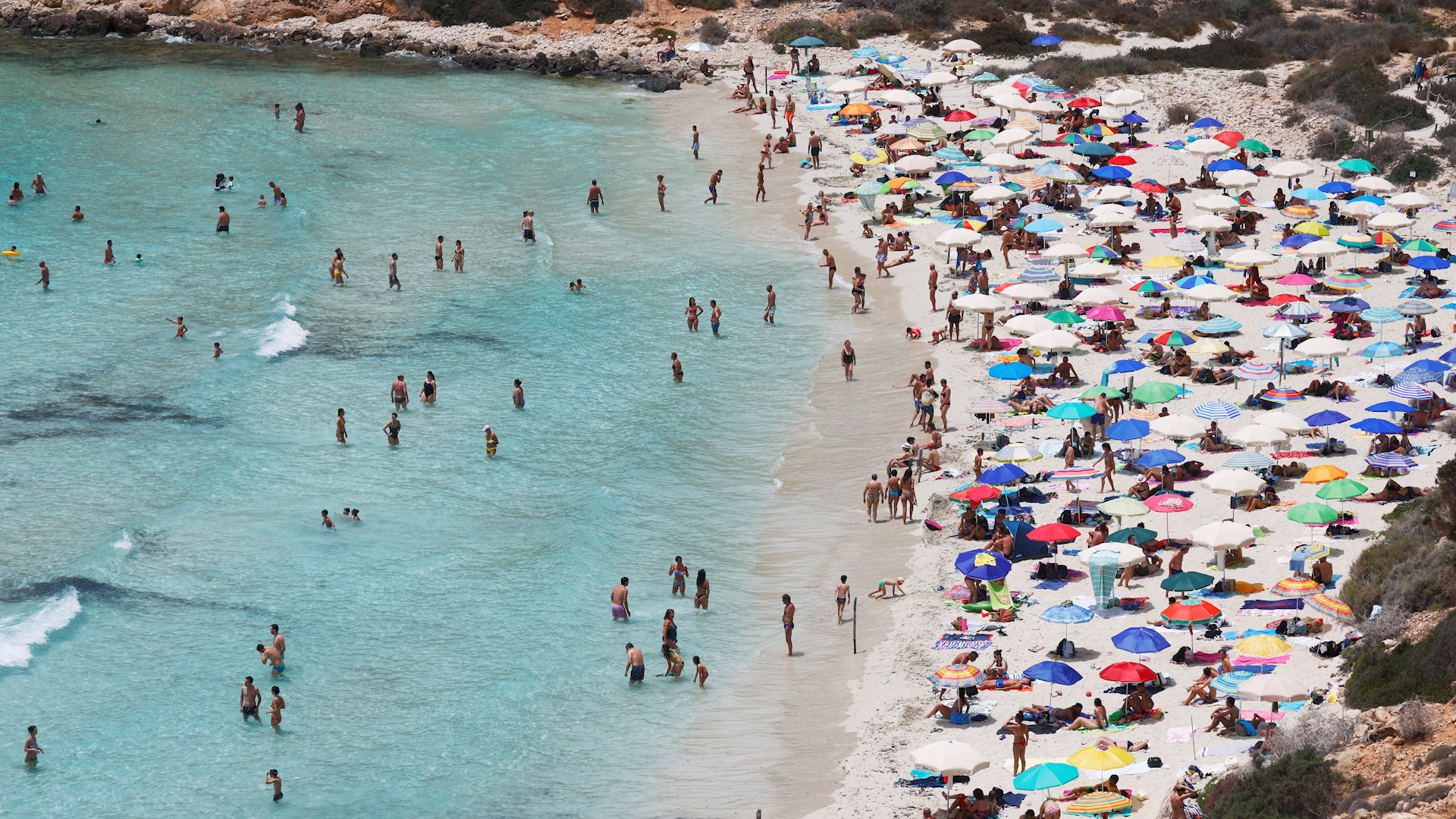02:28

Europe's money-making summer season is in jeopardy of being a financial flop for a second year in a row as the highly contagious Delta variant sweeps across the continent and forces countries to reimpose COVID-19 travel restrictions, mere weeks after they were relaxed.
According to the World Health Organization, new infections spiked 33 percent in Europe in the past week, although some countries are worse off than others.
READ MORE:
Lithuania to build barrier at Belarus border
China & EU agree sustainable finance needed
Germany's female gymnasts turn to unitards
France warned on Friday that the Delta variant would likely account for most new coronavirus cases from this weekend.
"It is progressively replacing all the other coronavirus strains that existed and it will soon be the most present, probably this weekend," said Health Minister Olivier Veran.
The Delta variant is believed to be 60 percent more transmissible than the highly infectious Alpha strain and it already accounts for more than half of new cases in Germany, the Netherlands and Belgium. By the end of August, Delta is expected to make up nearly all infections in Europe.
Travel restrictions back in play
As infections spike, EU member states are feeling the pressure to reimpose restrictions. Malta's health minister on Friday announced the country will ban all visitors from next Wednesday unless they are fully vaccinated.
Portugal, which took the lead in easing restrictions and welcoming tourists this spring, is once again a "red zone" on the European Centre for Disease Prevention and Control's travel map. The designation prompted a retightening of restrictions.
"We have extended the requirement for the digital certificate or proof of a negative test to hotels and to access restaurants in high-risk zones on the weekends," Mariana Vieira da Silva, Portugal's minister of state, announced on Thursday.
Most of Spain is also a red zone. On Thursday, the French government urged its citizens to vacation elsewhere if they are not fully vaccinated, but tried to walk the comments back on Friday.
"There is no tourism protectionism from France, there is a will to ensure health standards – tourism is fundamental for both our countries," Foreign Minister Jean-Yves Le Drian told a news conference in Madrid. "We all want to go on holidays but health protection is fundamental and that's why we must get vaccinated."

Health experts stress the urgency of ramping up inoculations as the fully vaccinated have strong protection from the Delta variant. /Reuters
Health experts stress the urgency of ramping up inoculations as the fully vaccinated have strong protection from the Delta variant. /Reuters
Travelers express confusion over constantly changing COVID-19 travel restrictions
While no country is uttering the word "lockdown," a patchwork of restrictions is creating confusion among travelers and threatens to undermine the COVID-19 certificate, which was designed to restore restriction-free travel across the bloc.
Elena, 24, from Brussels, is flying to Spain on Sunday. With travel restrictions rapidly evolving, she said she is anxious about getting stranded abroad.
"I am not fully on vacation in my mind, there is always something anxious about it," she said as she left a COVID-19 testing facility on Friday.
Another young man leaving the center said: "If someone wants to travel, I recommend they check all the new requirements because it's hard work."
The World Health Organization chastised Europe for lifting restrictions too swiftly, as if the pandemic were already over.
"The idea that everyone is protected and it's 'kumbaya' and everything goes back to normal, I think right now is a very dangerous assumption anywhere in the world and a dangerous assumption in the European environment," Mike Ryan, executive director of the WHO Health Emergencies Programme said at a press conference on Wednesday.
Some experts say Europe is already in the beginning stages of a fourth wave. The EU-approved vaccines – those made by Pfizer-BioNTech, Moderna, Johnson & Johnson and Oxford-AstraZeneca – appear to offer strong protection against the Delta variant, but only for the double-jabbed.
Currently, less than half of the population in Europe meets that mark. And there are huge discrepancies across the bloc: In Malta, 80 percent of the population is fully vaccinated, while in Bulgaria just 15 percent are covered.

